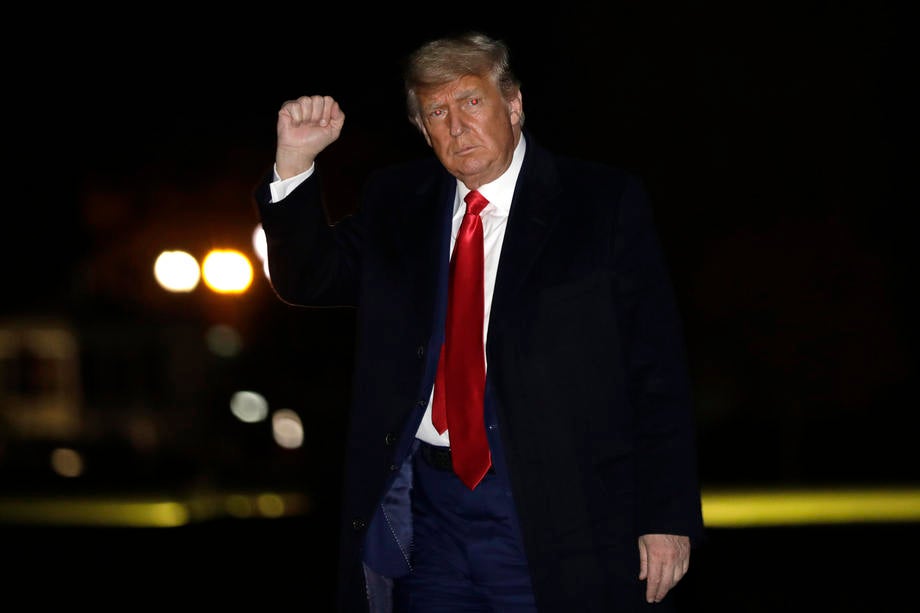Was it right to let deluded Trumpsters bet real money on their man after he lost the election?
Letting people gamble their cash on whatever improbable idea they have is what a free society means, writes John Rentoul. But it is not without moral problems


For weeks after the US election it was possible to make money by betting against Donald Trump being the next president. Indeed, it was possible until last week, even after enough states had certified their electors for the electoral college to guarantee Trump’s defeat.
The college duly met on Monday to confirm that Joe Biden had indeed won the election, by 306 votes to 232, and Betfair finally closed its controversial “next president” market.
Most conventional bookmakers settled their bets soon after the election, but Betfair is different, in that it is an online marketplace in which individuals place bets with each other. In theory, you can bet on pretty much anything, as long as you can find someone through the website who is prepared to bet the opposite.
Betfair could have kept that market open for as long as there were people prepared to bet that Trump would be inaugurated on 20 January, but there was such an outcry that it was unfair for it to facilitate fools being parted from their money that the company closed it anyway.
This raises a particular moral question that often arises when it comes to gambling, which is that some people have better information than others. At the extreme, betting on inside information – on royal baby names or the colour of the chancellor’s tie for the budget speech, for example – is obviously wrong, but most information asymmetry is accepted as a fact of life.
Usually, this doesn’t matter. Most experts are no better at predicting what will happen in their field than innocents – which is one of the reasons I do not bet on politics.
But in this case, the Trump supporters willing to bet on their candidate are not just misjudging probabilities, they are misjudging reality. As Alastair Meeks points out on the Political Betting website, a second Trump term is still theoretically possible, because there could be a coup; it’s just that the chances of it happening are much, much smaller than the Trump gamblers think.
Naturally, this brings out my inner presbyterian, disapproving of gambling and worrying about addiction. But Meeks argues convincingly that in a free society it is impossible to prevent people from betting against each other. The people he calls “deluded Trumpsters” are adult citizens who are entitled to their opinion that it is the other side who are deluded, and who are going to lose their money.
In the end, you cannot and should not stop people putting up bail for Julian Assange, or contributing to Jeremy Corbyn’s fighting fund, or betting that Donald Trump will be the next president of the US. Anyway, it was better than the deluded Trumpsters’ money going to Trump’s 2024 re-election fund.
Yours,
John Rentoul
Chief political commentator



Join our commenting forum
Join thought-provoking conversations, follow other Independent readers and see their replies
Comments